Citrus culture: ornamental vs sweet fruit
fruitnut Z7 4500ft SW TX
11 years ago
Featured Answer
Sort by:Oldest
Comments (37)
fruitnut Z7 4500ft SW TX
11 years agoRelated Discussions
Yams vs Sweet Potatoes
Comments (48)Poor sweet potato! It has a serious naming problem. Not only does it get stuck with the name of some OTHER tuber that's not even remotely related either botanically or taste-wise (I too have tasted "real" yams, and they're not much like sweet potatoes at all)... ...but they also got their "proper" name STOLEN by a certain tuberous nightshade plant! I heard that the word "potato" originally referred to Ipomea batatas, then was later used used as a more general term for root or tuber vegetables, and then later somehow got stuck on Solanum tuberosa, so that people felt that the original potato had to now carry the qualifier "sweet", even though not all varieties of Ipomea batatas are sweet. Though I guess it's bad enough calling the other potatoes "Irish potatoes", when they're from South America, or calling them "white potatoes" when not all of them are white and some sweet potatoes are white. Basically... we need better words for things. :-P...See MoreUgli Fruit vs 'Cocktail' Grapefruit
Comments (6)I've tasted both (from a supermarket, so I'm not really sure either were at their best). The Ugli fruit was kind of like an orange-flavored grapefruit. The flavor was a little watery. The oils in the rind are very "heavy" and spicy (also "intense" and "bitter"). Not really sure it's in a good way that makes you want to eat it, but it does add a distinctive character to the aroma of eating the fruit. Now you can draw a parallel between the taste of Ugli fruit and a Cocktail grapefruit. They could both be described is laying somewhere in between the spectrum of grapefruit and orange. Cocktail grapefruit is much sweeter though and I would say the orange-aspect is a bit more mandarin-like. Neither really has the full grapefruit flavor or a fragrance of a regular grapefruit. (I'd say the Ugli fruit wasn't like a grapefruit at all, in terms of flavor). The Ugli fruit didn't have a huge amount of flavor. (I think it's mostly those spicy fragrances in the peel that draw people to eat it). Insepid might not be the right word, but like a very mild flavored orange....See Moreseed offer: Crunch Sweet Orange sweet pepper
Comments (87)I was sick this season so I didn't get to keep the garden size I usually keep, but I do have a -very- limited amount of seed. I've already sourced over 1/2 of it locally. I have enough for 4-5 mailings of 4-5 seeds. I also have the spare postage from the earlier offer to send it out without a SASE. I'll hold 2 of these for ferret/bdan for a while. Email me at pepperdude@live.com and be sure to tell me your GardenWeb nickname along with it. I had issues with this past offer making other boards and getting a ton of requests from people who were only hording seed. It wasn't a big deal, but there's not enough to go around this time....See Morefavorite tropical fruit for pot culture...
Comments (24)Funny, but my latest horticultural phase has been tropical fruits. I have had had success growing the following tropical/subtropical fruits in the north: lemons, oranges, limes, and kumquats loquats mangos papayas bananas pineapple coconut figs grapes I am currently in the process of adding the following to my indoor/outdoor collection: Mammey sapote Guava Jackfruit Breadfruit So far, only my citrus have regularly flowered and fruited. A friend of mine though was successful in getting a small containerized mango to fruit. So far the the only banana that I have had flower is the Chinese banana (Musella lasiocarpa), but the fruit really isn't eaten. Hope springs eternal. Good luck!...See Morehoosierquilt USDA 10A Sunset 23 Vista CA
11 years agofruitnut Z7 4500ft SW TX
11 years agojohnmerr
11 years agofruitnut Z7 4500ft SW TX
11 years agohoosierquilt USDA 10A Sunset 23 Vista CA
11 years agofruitnut Z7 4500ft SW TX
11 years agohoosierquilt USDA 10A Sunset 23 Vista CA
11 years agohoustontexas123
11 years agomeyermike_1micha
11 years agofruitnut Z7 4500ft SW TX
11 years agofruitnut Z7 4500ft SW TX
11 years agomeyermike_1micha
11 years agotrianglejohn
11 years agofruitnut Z7 4500ft SW TX
11 years agofruitnut Z7 4500ft SW TX
11 years agodenninmi
11 years agorhizo_1 (North AL) zone 7
11 years agodenninmi
11 years agomeyermike_1micha
11 years agomeyermike_1micha
11 years agomeyermike_1micha
11 years agohoosierquilt USDA 10A Sunset 23 Vista CA
11 years agodenninmi
11 years agofruitnut Z7 4500ft SW TX
11 years agohoosierquilt USDA 10A Sunset 23 Vista CA
11 years agofruitnut Z7 4500ft SW TX
11 years agohoosierquilt USDA 10A Sunset 23 Vista CA
11 years agomeyermike_1micha
11 years agotrianglejohn
11 years agoprestons_garden
11 years agofruitnut Z7 4500ft SW TX
11 years agoprestons_garden
11 years agohoustontexas123
11 years agorhizo_1 (North AL) zone 7
11 years agoprestons_garden
11 years ago
Related Stories

GARDENING GUIDESHow to Keep Your Citrus Trees Well Fed and Healthy
Ripe for some citrus fertilizer know-how? This mini guide will help your lemon, orange and grapefruit trees flourish
Full Story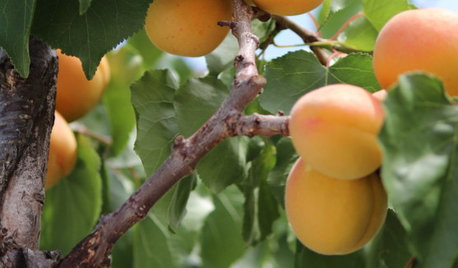
FARM YOUR YARDIf You Have Room for Only One Fruit Tree ...
Juice up a small garden with one of these easier-care or worth-the-effort fruit trees for a mild climate
Full Story
EDIBLE GARDENSHow to Grow 10 Favorite Fruit Trees at Home
Plant a mini orchard in fall, winter or early spring to enjoy fresh-off-the-tree fruit the following year
Full Story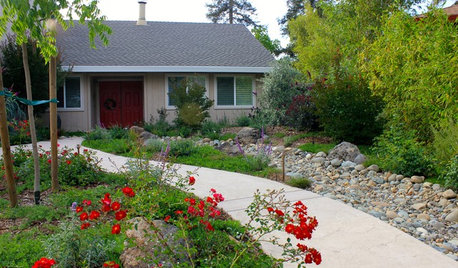
LANDSCAPE DESIGNCalifornia Says Goodbye to the Sprawling Ornamental Lawn
New state rules will effectively limit turfgrass to 25 percent of the landscape in most new and renovated yards
Full Story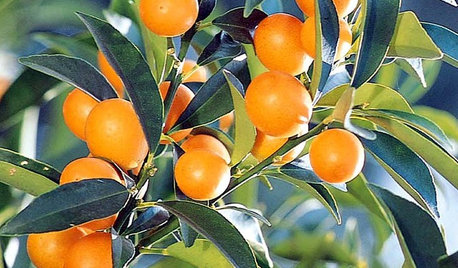
GARDENING GUIDESGreat Design Plant: Kumquats for a Juiced-Up Winter
Grow it for the edible fruit or its good looks alone. This citrus cousin will brighten any gray winter day
Full Story
GARDENING AND LANDSCAPINGWorld of Design: 10 Home Gardeners Show Us Their Sweet Summer Harvests
From New York to Tokyo, these gardeners have turned their yards, terraces and rooftops into places of bounty
Full Story
DECORATING GUIDESDesign Mystery: Why Do Pineapples Sprout Up in Home Design?
Early Americans were bananas about pineapples — and we’re still reaping the benefits of the sweet fruit’s symbolism today
Full Story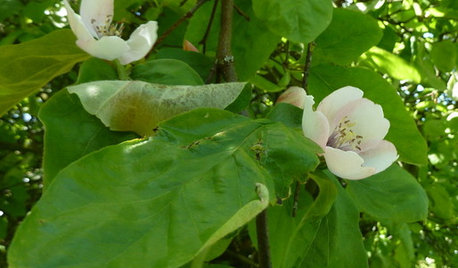
EDIBLE GARDENSWhy Grow Quince? For Beauty, Fragrance and Old-Time Flavor
Delightfully perfumed fruit and lovely spring blossoms make this apple and pear cousin worth a spot in the garden
Full Story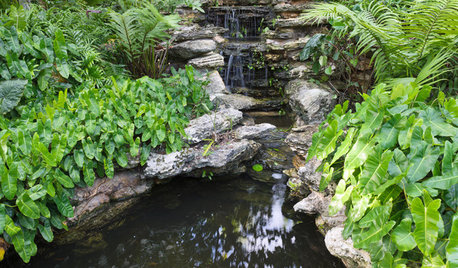
LANDSCAPE DESIGNRecipe for Tropical Edible Garden Style
Appeal to exotic good taste with fruit trees, palms and tropical look-alikes in your temperate-climate garden
Full Story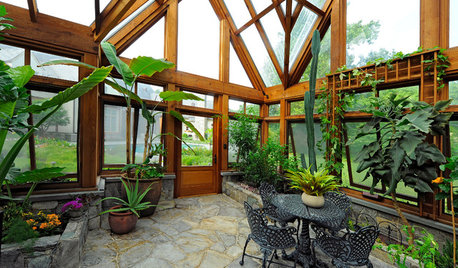
EDIBLE GARDENSThe Enticing Garden: How to Grow Bananas
Sweeten your dining table with surprising flavors of banana cultivars while adding tropical flavor to your garden
Full StorySponsored
Leading Interior Designers in Columbus, Ohio & Ponte Vedra, Florida



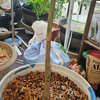
denninmi